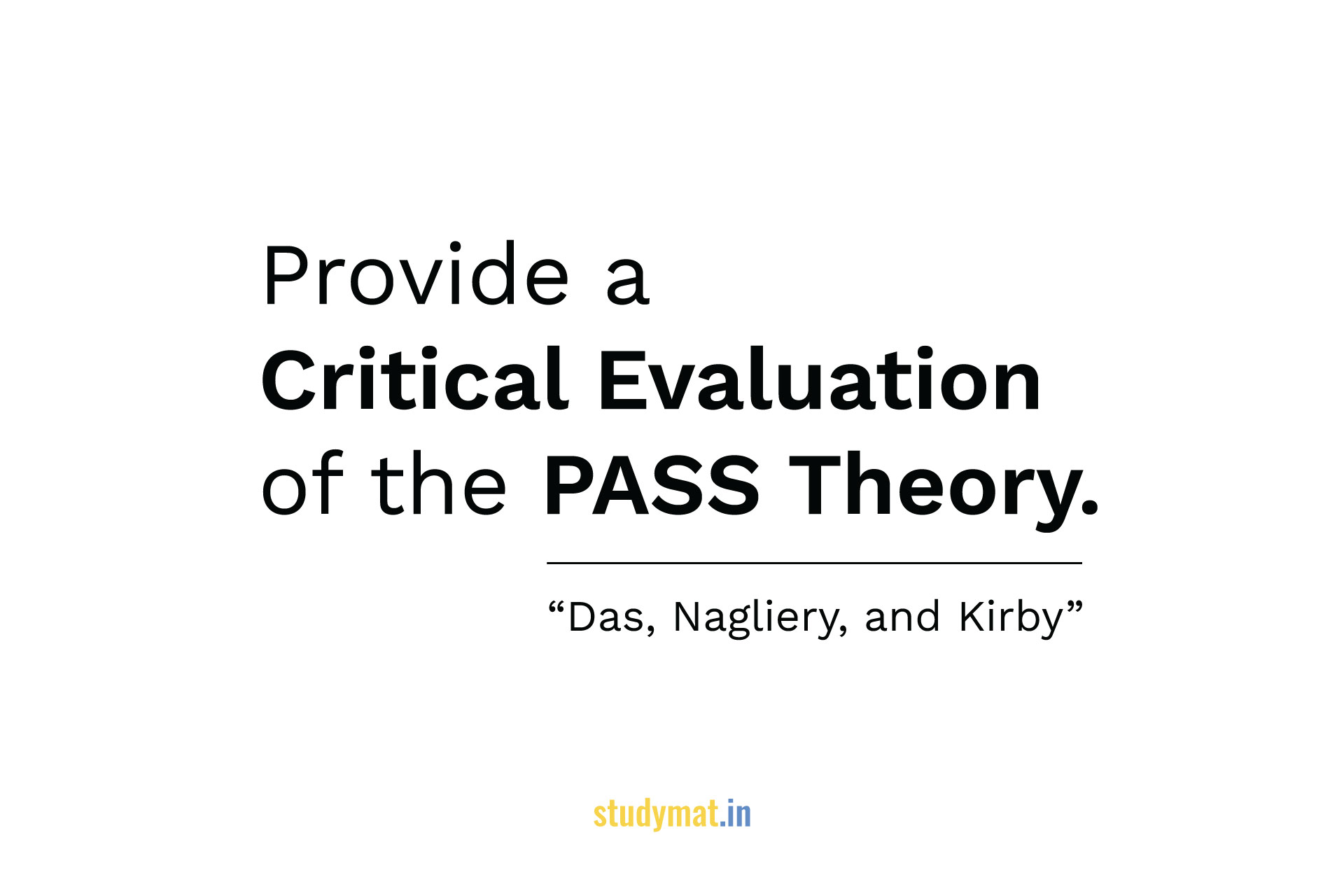In this article, we will Provide a Critical Evaluation of the PASS Theory.
Das, Nagliery, and Kirby (1994) have developed a theory-based, multidimensional view of intelligence with constructs borrowed from contemporary research in neuropsychology, information processing, and human cognition.
There have four components – Planning, Attention-Arousal, Simultaneous, and Successive (PASS) processing systems in this theory.
Alexander Luria’s pioneering researches in the fields of neuropsychology, information processing, and cognitive psychology have provided the theoretical basis to the PASS theory. Luria divided human cognitive processes into three primary functional units.
- The primary function of the first unit is maintaining suitable cortical arousal and attention to allow for adequate care and discrimination between stimuli.
- The second unit is responsible for obtaining, elaborating upon, and storing information using successive and simultaneous processes.
- The third functional unit is responsible for programming along with the regulation and control of mental activity. This functional unit provided planning, self-monitoring, and structuring of cognitive activities.
Read Also:
Describe the Research Methods in Cognitive Psychology.
Critical Evaluation of Das, Nagliery, and Kirby’s PASS Theory:
The PASS (Planning, Attention-Arousal, Simultaneous, and Successive) theory has provided a unique approach to assess intelligence. It is cognitive in orientation and it bases its tests on neuropsychological theories of Russian psychologist, Luria. Of significant importance of Das, Nagliery, and Kirby (1994) was to move away from conventional tests of intelligence and to provide a theory-based multidimensional view of intelligence that’s constructed on contemporary research on human cognition. It has an applied utility also. Undoubtedly all tests of intelligence attempt at tapping cognitive features. However, most of them approximate the fundamental processing of informational input.
Read Also:
Discuss Guilford’s Structure of Intellect Theory or Three Dimensional Theory.
One more attribute of this theory is that it has developed a Cognitive Assessment System (CAS) test. CAS offers a unique opportunity to examine the relative contribution of cognitive processes as a testee undergoes a testing scenario. CAS has four subscales, named after PASS Theory. Test items are specially designed to assess a testee’s skill in each of them separately as well as collectively.
Follow us:
If you like this article, you can Follow us on Facebook.
Also, you can Join our Official Facebook Group for QnA Sessions and Discussions with the worldwide IGNOU community.



